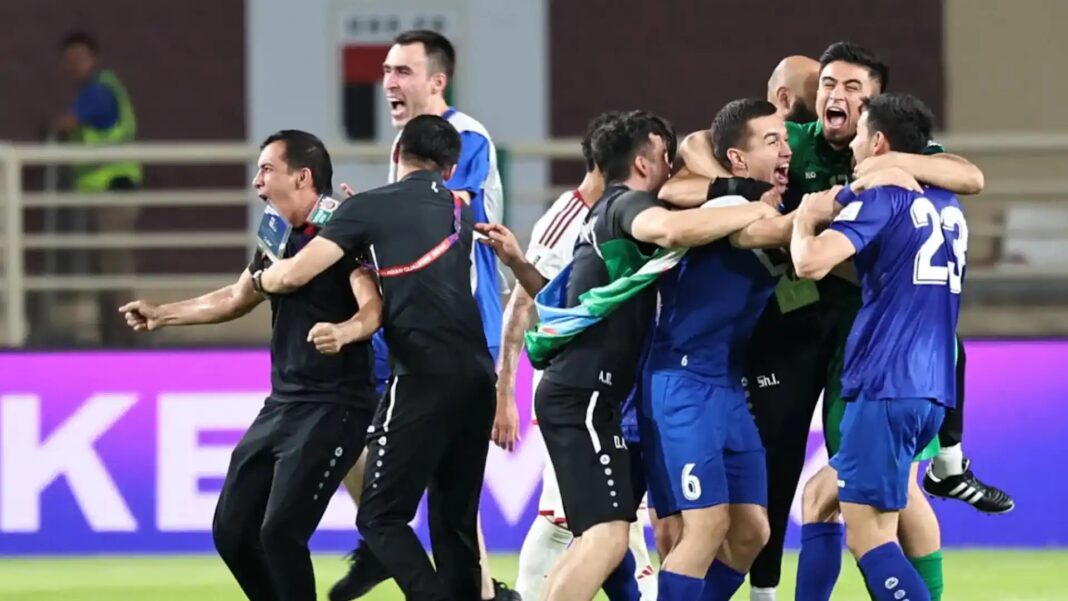On June 5, 2025, Uzbek football reached a moment that redefined the sporting landscape of Central Asia. The White Wolves completed its ascent from nearly a century of football development, heartbreak, and revival to qualify for the FIFA World Cup for the first time—a historic feat that positioned Uzbekistan as the region’s unlikely flag-bearer on the world’s biggest stage.
Early Footprints: Football Roots in Soviet Uzbekistan (1906–1991)
Uzbek’s football journey began in 1906 in Skobelev (Fergana), seeded by Russian soldiers, and quickly took root in Tashkent and Kokand. By 1926, the Uzbek SSR staged its first championship, and by 1928, a national team formed—beating Switzerland 8-4 at the All-Union Spartakiad in Moscow, marking Uzbekistan as a USSR football hub.
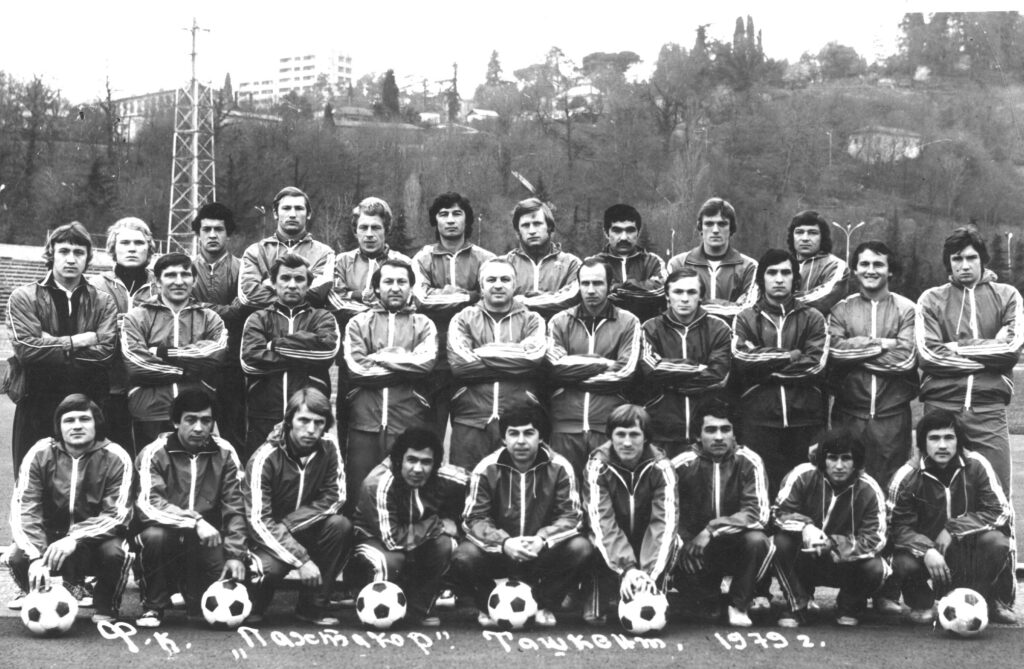
Pakhtakor FC, founded in 1956, became the singular Uzbek representative in the Soviet Top League, and produced homegrown legends such as Berador Abduraimov—the league’s top scorer in 1968 and Uzbek football’s original icon. Soviet-era players like Abduraimov and Pshenichnikov would later inspire future generations and lend substance to football’s social weight in the region.
Entering Independence: Shaping Modern Uzbek Football (1991–2002)
After the disintegration of Soviet Union, The Uzbek Football Federation formed in 1994, joining AFC and FIFA.
The newly independent team debuted in 1992’s Central Asian Cup; by 1994, Uzbekistan stunned all by clinching the Asian Games gold, defeating China 4-2 in a dream final and announcing the White Wolves’ arrival on the Asian scene.
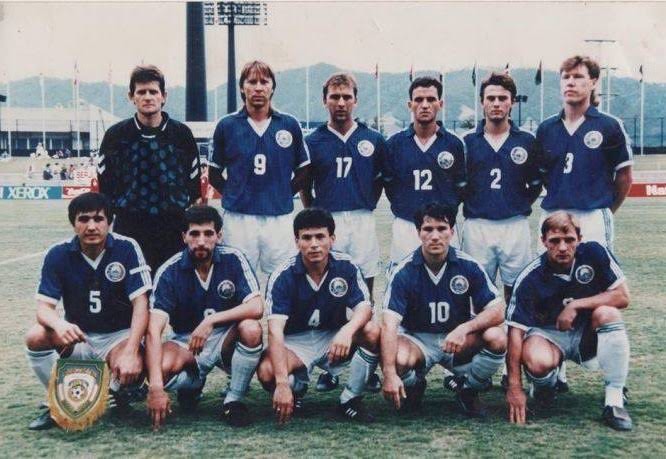
These formative years cemented the White Wolves’ competitive ambitions, laying the groundwork for the federated technical structure and grassroot growth that would fuel later progress.
The Years of Heartbreak: World Cup Qualification Attempts & Painful Near-Misses (1998–2022)
Uzbekistan would attempt World Cup qualification seven consecutive times—each ending in disappointment, controversy, or last-gasp heartbreak.
- 2006 The Bahrain Playoff Controversy : Uzbekistan led 1-0 in the playoff before a notorious referee decision reversed Server Djeparov’s goal and changed the match, ending their hopes via an unprecedented FIFA-ordered replay.
- 2014: Eliminated after a marathon penalty shootout against Jordan.
- 2018: Required victory against South Korea; managed only a stalemate and watched Syria claim the last Asian playoff spot with a last-minute goal elsewhere.
- 2022: North Korea’s withdrawal, attributed to COVID-19, disrupted qualification calculations, ending Uzbekistan’s campaign prematurely.
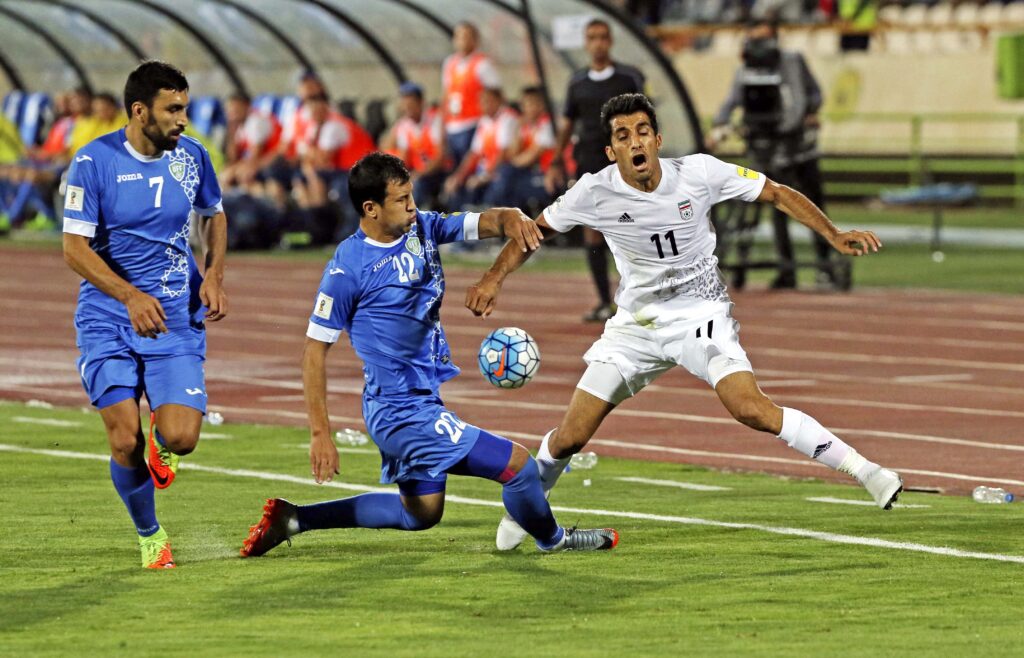
Each cycle fortified the nation’s resolve, giving rise to a technical reform culture within the UFA and a growing recognition of youth as the engine for sustainable success.
Youth Revolution and Structural Transformation: The Seeds of Success (2010–2023)
Uzbekistan’s football renaissance truly began when the nation shifted its focus to youth development and systematic reform. The years from 2010 to 2023 marked a period where the potential seen in earlier generations transformed into tangible achievement.
Uzbekistan’s U-23 side lifted the Championship 2018, soon followed by the U-20 squad’s continental triumph in 2023. The crowning moment came in 2025, as the U-17 side won the Asian Cup against formidable odds, playing with just nine men in the final and showcasing both technical ability and psychological resilience.
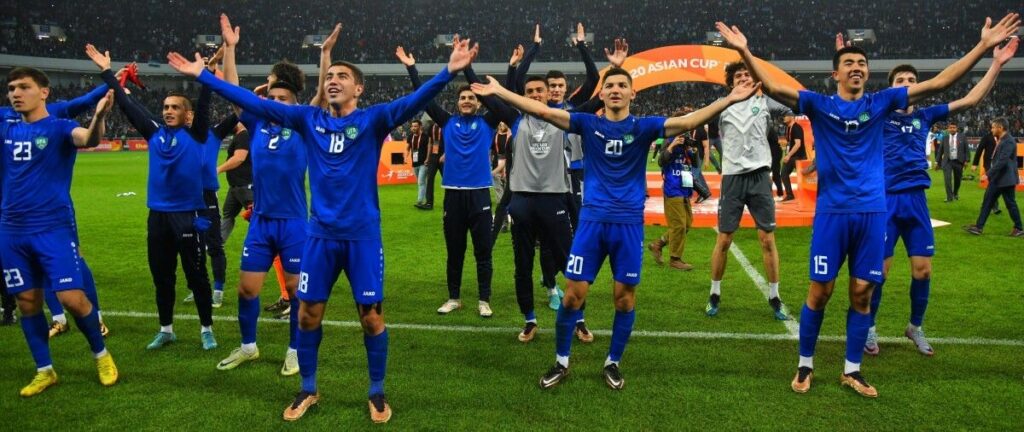
These youth-level successes were no accident. A series of government-backed reforms fundamentally modernized Uzbek football, anchored by presidential decrees in 2018, 2019, and 2023. Grassroots football academies spread across all regions, offering unified coaching methodology and professional management under the Football Association.
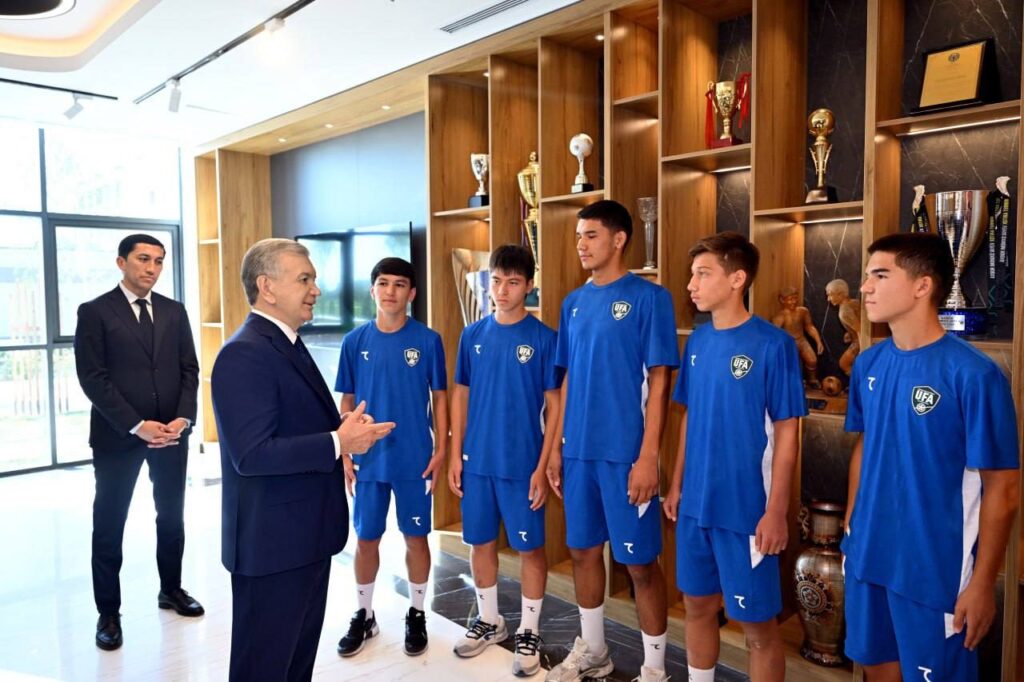
The creation of the state-of-the-art National Football Center in Yukorichirchik in 2025 epitomized this commitment, providing world-class facilities and international expertise that supported everything from technical skills to advanced medical science.
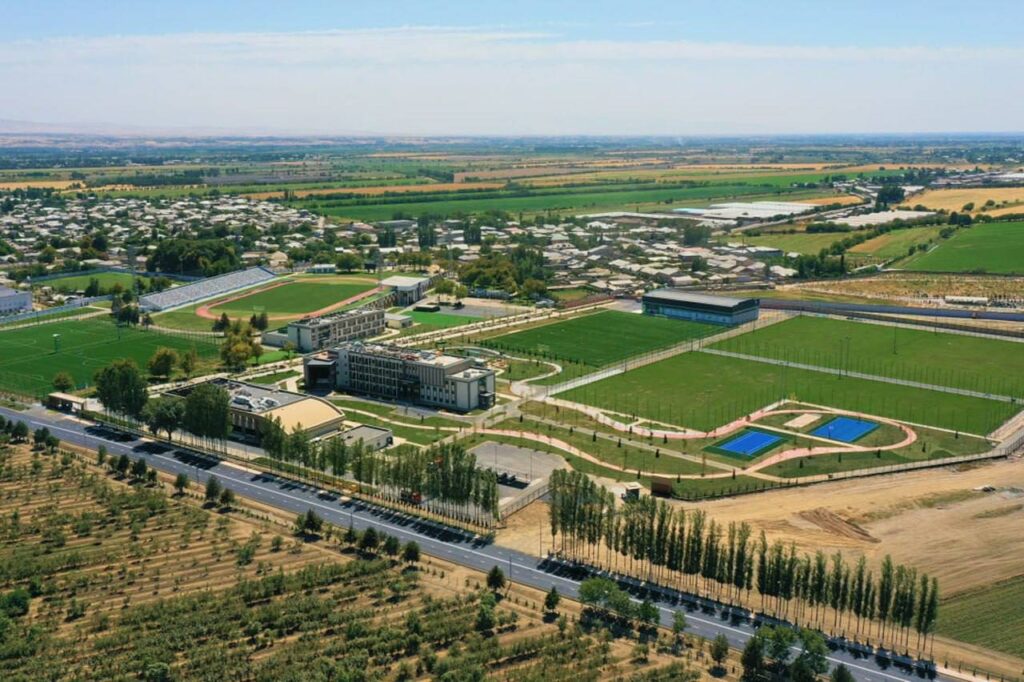
Key to this period was the embrace of scientific training and the recruitment of global specialists. Medical and sports science became normalized in academy setups, while the use of video analysis and VAR technology allowed coaches to foster tactical sophistication in youth cohorts. Uzbek football legend Server Djeparov symbolized this era’s progress, his AFC Player of the Year awards and success at club level exemplifying the new standards of excellence and international competitiveness.
The Road to Glory: World Cup Qualification Campaign (2024–2025)
The culmination of reforms, talent, and tactical maturity arrived during the dramatic 2026 World Cup qualification journey. Under Timur Kapadze’s guidance, the senior White Wolves executed their campaign across Group A of the Asian qualifiers with remarkable discipline and attacking verve. Facing regional powerhouses, Uzbekistan displayed a cohesive blend of youth graduates and experienced leaders, consistently showing technical organization, high pressing, and a compact defensive shape.
Uzbekistan finished second in their group, behind Iran but comfortably clear of perennial contenders like UAE and Qatar. Their campaign peaked with a decisive 3-0 demolition of Qatar, where captain Eldor Shomurodov led by example, finding the net alongside Igor Sergeev and Aziz Turgunboev.
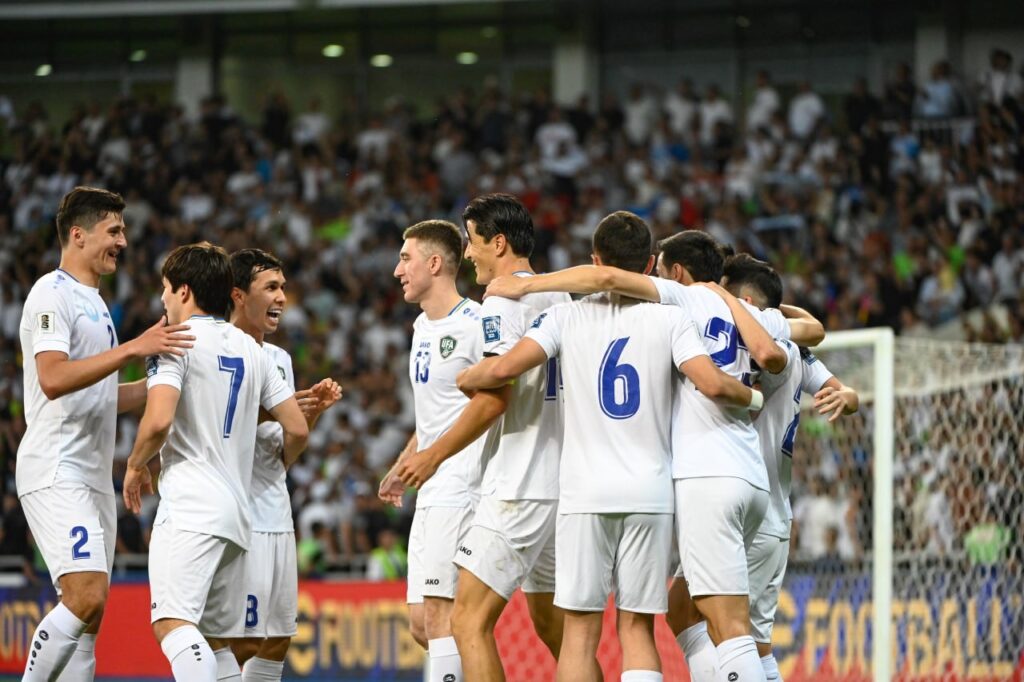
The squad’s fluidity and directness mirrored European tactical blueprints, a testament to their upgraded training methodologies and infrastructural investment.
A crucial, nervy 0-0 draw against the UAE secured qualification even before the final group fixture, making Uzbekistan the first double-landlocked nation to qualify for the World Cup.
The roster was anchored by major talents: Eldor Shomurodov (AS Roma) and Abdukodir Khusanov (Manchester City) formed a core complemented by homegrown stars shaped through the federation’s academy pipelines. The technical growth from youth teams translated directly into senior team consistency; structured coaching, a robust medical support system, and analytical match preparation all contributed decisively to this achievement.

President Mirziyoyev’s presence at the final qualification match and his public celebration—bestowing medals and even new cars—underscored the sport’s growing importance. The White Wolves’ entry into the World Cup became a catalyst for national unity, a source of pride not only for Uzbekistan but for the entire Central Asian region.
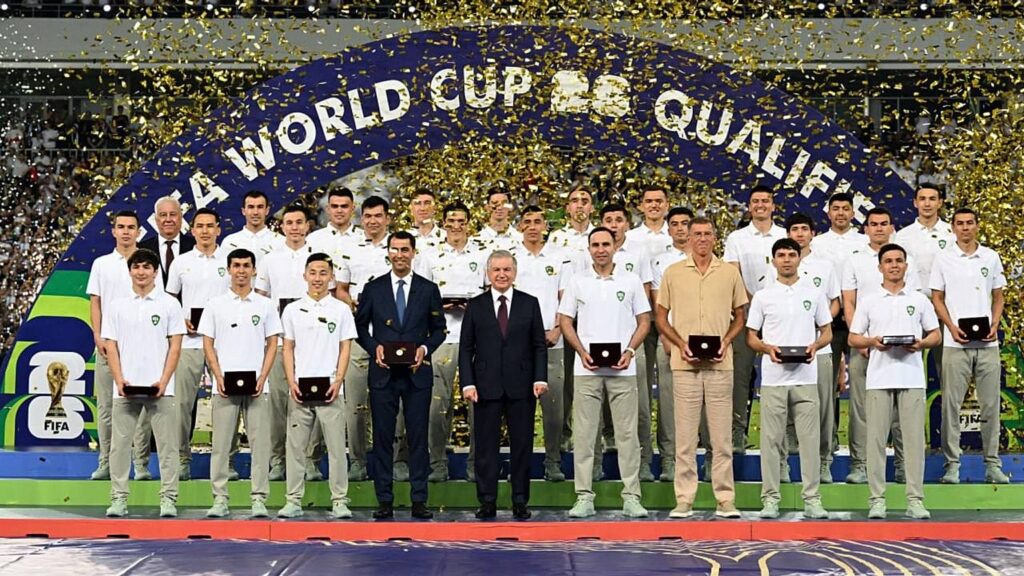
Towards the World Cup: Leadership and Vision (2025 and Beyond)
Riding the wave of their epochal success, Uzbekistan further raised their ambitions by appointing 2006 World Cup winning captain, Fabio Cannavaro as national team coach for the 2026 World Cup. This move symbolized their intent to blend international tactical know-how with native player development, positioning the newcomers as more than just symbolic participants—they sought tangible success, determined to channel decades of preparation towards real results on the world stage.

Uzbekistan’s 2026 World Cup qualification is not merely a sporting statistic but a narrative of patience, transformation, and cultural pride. The White Wolves’ journey—punctuated by Soviet history, modern reform, near-misses, and youth-driven resurgence—offers lessons for every aspiring football nation. Their debut on football’s grandest stage stands as a living proof that persistent, strategic investment and collective resolve can breach even the most unyielding frontiers.
As the world tunes in to watch the White Wolves run at the 2026 FIFA World Cup, Uzbekistan will carry not just its own hopes, but those of an entire region ready to embrace the future, united by football.

